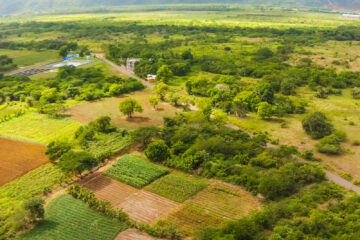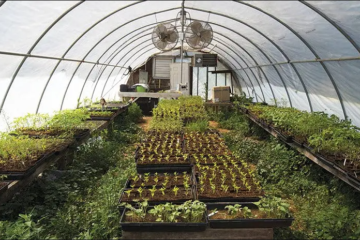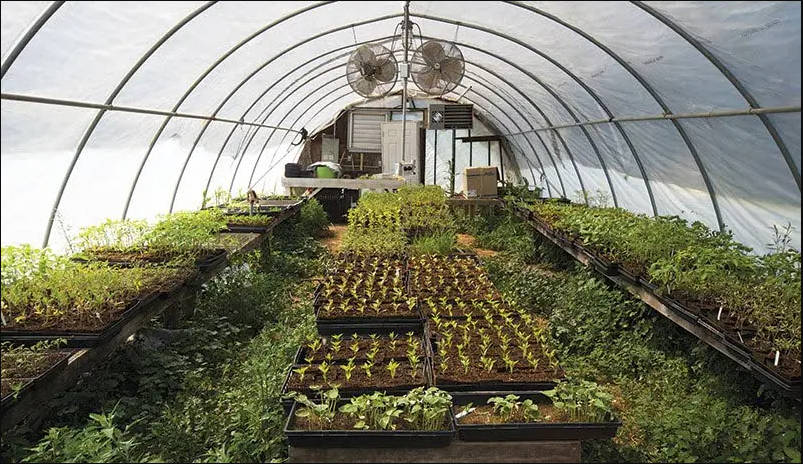


This article was originally published by the Jamaica Observer on January 31, 2024. The original article can be found here.
In a bid to strengthen local supply chains between the agriculture sector and hotels, the business development and investment facilitation arm of the Ministry of Agriculture and Fisheries, Agro-Investment Corporation (Agro-Invest), is encouraging more investment in the cultivation of fruits and vegetables.
Highlighting that the tourism sector is set to grow with the addition of new rooms over the next decade, CEO of Agro-Invest Vivion Scully issued an invitation to potential investors during a recent Ministry of Agriculture, Fisheries, and Mining F.A.C.E of Food Stakeholder Engagement Session held in Montego Bay, St James. There he underscored the need to meet both current and future demands for agricultural produce and strengthen linkages between the agriculture and hospitality sectors.
“As you know, the tourism sector has just over 30,000 rooms. Based on the gains that are being made in the sector, we are likely to see an additional 10,000 to 20,000 rooms over the next five to 10 years. They’ve added about 2,000 in the last two years and there are several projects on stream right now,” he told the
Jamaica Observer in a subsequent interview.
“So one of the concerns that the sector is seeing is substantial fluctuation in the supply of fresh vegetables and fruits from Jamaica, and it’s actually urging them and several of the producers — the suppiers of produce to the hotels — to import fruits and vegetables as well,” he continued.
In 2023 alone, Jamaica hosted approximately 4.1 million visitors, and this, Scully believes, is a clear indication that demand for local produce will continue to grow as more hotel rooms are added. With this in mind, he argues that there is “tremendous potential for investors” in the agriculture sector.
“So, what we’re doing at Agro-Invest is that we’re inviting investment into the sector not just to supply the current needs but to position themselves for the growth trajectory that is expected over the next three to five years,” he explained.
Agro-Invest manages a significant portion of the Government’s land bank for agriculture use and currently leases about 8,000 acres to farmers, investors and corporate entities to grow a variety of produce such as Scotch bonnet peppers, potatoes, and onions. The corporation is planning to increase the lands under lease to 10,000 acres over the next year with the launch of Southern Plains Agricultural Development project, then another 12,000 acres thereafter.
Set to launch this year, the Southern Plains Agricultural Development project is leasing lands in St Catherine and Clarendon for the purpose of growing fruits and vegetables. The project aims to improve supply chain efficiency while encouraging investment in Jamaica “to unlock the immense potential within its agricultural landscape”.
When asked if the project will threaten the Government’s self-sufficiency programmes that aim to improve the production of potatoes and onions, Scully noted that it will instead will be complementary to them.
While noting that increasing the production of fruits and vegetables is an integrated process where all stakeholders work collaboratively, Scully said, “We’ve been having an ongoing dialogue with the Ministry of Tourism, the Ministry of Agriculture, and distributors of produce and farmers and hotels with the view to bring all of them to the table.”
According to the Agro-Invest, the project will work in harmony with the nation’s agricultural policy, emphasising diversification for self-sufficiency, export expansion, and support for the burgeoning tourism industry.
“By cultivating high-demand vegetables such as lettuce, tomatoes, peppers, melons, cantaloupes, and broccoli, investors can significantly contribute to meeting the rising demand for fresh, locally sourced produce in Jamaica’s evolving tourism landscape,” the corporation stated in a release.
Scully also shared that the challenge in meeting the growing demand in the local hotel sector is compounded by rising demand for produce among local agro-business producers who are trying to satisfy export needs.
“Right now, we are having challenges with Scotch bonnet pepper supplies and scallion, not only because the hotels are growing but [also because] the agro producers are growing. All the people who are doing pepper sauces are seeing increased demand for the product in the export market,” he told the
Business Observer.
Moreover, he said that the challenge of climate interruptions is not making it easy to supply both local and export demand. The world recorded its hottest year in 2023 with Jamaica seeing temperatures in the summer rising to the mid-30s in Celsius.
It is for this reason Scully believes that increasing the acreage of lands under agricultural production could be a mitigating measure to a decline in output.
“Because if you had 50 acres under production and climate change is impacting you that your production is going down by 10 per cent, you can offset that by increasing the amount of acreage under production,” he noted.
The Agro-Invest CEO added further that the lands leased under the Southern Plains Agricultural Development project will have irrigation.
“The majority of our lands are usually irrigated, and in fact the Southern Plains is going to be a 100 per cent irrigated by the NIC (National Irrigation Commission). The irrigation has already been built out and the project is about 90 per cent completion now. So, once we close the loop on the reservoir that’s being installed, then the contracts will be handed over to investors who would have applied,” Scully pointed out.
“It’s a ready-made market and it’s something the investment community should look at and that’s what we’re inviting persons to do right now,” he added.
Another measure he said the agro-business development agency has embarked on to secure supply chains to hotels is installing post-harvest storage facilities across Jamaica.
He said that another project geared towards increasing greenhouses is now in the works to strengthen supply chains to hotels.
“We have a couple of greenhouses we are resuscitating and we’re also making 100 acres of land available in St Ann close to the hotels, where farmers can establish greenhouse operations in the Hinds Town area,” Scully stated.
“The pilot will be launched this year in the next six months and then based on demand we will expand,” he informed the
Business Observer.
The Agro-Invest team is working with a number of international donor agencies such as the Food and Agriculture Organization, the Inter-American Development Bank, the World Bank, and the Inter-American Institute for Cooperation in Agriculture on the projects.
